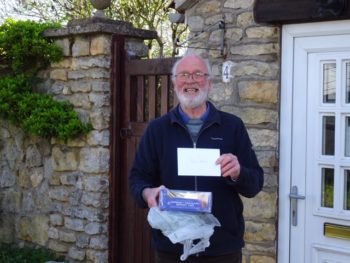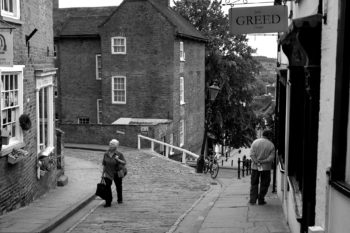Over 2,000 vulnerable people across Lincolnshire have been “offered an essential lifeline” by Good Neighbour Schemes (GNS) and other groups since lockdown started, according to recent statistics.

The schemes, run by Community Lincs, part of YMCA Lincolnshire, are local groups based in Lincolnshire communities, which aim to assist the elderly and vulnerable by helping them carry out their day-to-day tasks.
These may include shopping, collecting prescriptions, dog walking and other household jobs.
Georgina Clark, communities project support officer for Community Lincs, said: “The groups are all quite different depending on the needs of the community.”
She explained how the schemes reach out to those in need of support and find new volunteers.
“A flyer is generally put through the letter box for everyone in the parish, which is also an opportunity to find volunteers.
“The vulnerable may not be on social media so a flyer through the door gets a great response and covers all the angles. We do use social media, but we like to hand deliver.”
Community Lincs has been working with Lincolnshire Co-operative which has allowed them to reach out to the community groups set up due to the COVID-19 pandemic.
“The community spirit we have seen has been amazing and we hope that communities will continue to support their neighbours,” said Ms Clark.
Good Neighbour Schemes had already been established prior to the COVID-19 pandemic.
Springline Good Neighbour Scheme, which was set up in 2006, provides support for vulnerable and elderly residents who live in several areas of Lincolnshire. In response to the novel coronavirus, the scheme saw many new faces sign up.
Volunteer and trustee for the scheme, Christine Walker, is responsible for recruiting new volunteers.
Ms Walker said: “During the pandemic, it has been difficult, as most of our volunteers are over 70 because we are the ones who are retired and who can do work for the ill.
“So Ingham Parish Council and our charity got together as a group and recruited an extra 40 temporary volunteers who were all under 70.
“We have spent a lot of time getting shopping, prescriptions, ringing people up and seeing how they are, and the volunteers have developed a good relationship with the clients they have looked after.”

She explained the impact the scheme has had on the community during the pandemic.
“Now, when I walk in the village, I meet and speak to people I didn’t even know previously, and everyone waves.”
Community Lincs provides various forms of support to those who plan to set up a Good Neighbour Scheme.
Ms Clark said: “We provide a range of support to the groups and we have a toolkit that provides different resources, policies and forms which each group can look through.
“The community will need to set up a consultation group, establish a committee and a constitution which states its aims and objectives, which means they can apply for funding.”
Funding comes from the National Lottery Community Fund.
Community Lincs is currently working to set up a scheme in Sincil Bank, Lincoln, as well as looking into other opportunities across the city.
Ms Clark explained more about what volunteers can expect.
“We offer telephone befriending in the schemes so the vulnerable can talk to someone from time to time.
“We also have network meetings twice a year, where all of the GNS can come along and we set up a venue, which is a good opportunity for sharing good practice, useful tips and ideas across the schemes.”
Those wanting to sign up can view their nearest GNS and find contact details using the interactive map.

